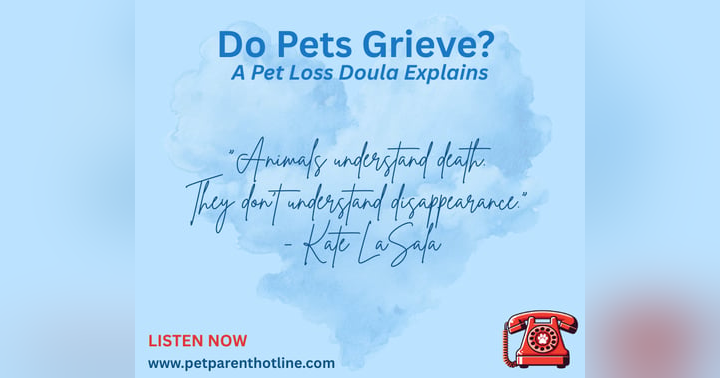Is it time to hire a dog trainer? Signs you need professional help.

If you’re a pet parent, chances are you’ve asked yourself at least once, “Do I really need a dog trainer?” Maybe your puppy’s cute little nips are turning into painful bites, or your “relaxed evening walks” feel more like you’re being dragged behind a sled dog team. Too often, people wait until they’re desperate before calling in help, and by that point, the problems are bigger, harder, and more frustrating to fix.
This week on The Pet Parent Hotline, I sat down with professional dog trainer and behavior consultant Bradley Phifer to talk about when to bring in a trainer, how to pick the right one, and the red flags that should send you walking the other way. Bradley has nearly two decades of experience and also serves as Executive Director of the Certification Council for Professional Dog Trainers (CCPDT). In other words, he knows his stuff, and he’s seen the best AND the worst of the dog training world.
Why You Shouldn’t Wait for a “Big Problem”
Most people, including me until recently, assume trainers are only for “problem dogs” the ones barking at the neighbors, growling at guests, or tearing up the couch cushions. But Bradley reminded me that waiting until things are out of control is the wrong approach. Think of it like going to the doctor. Preventative care is easier and less stressful than trying to treat a crisis. Another thing I've realized is that when you wait to get help fixing a problem, you have allowed a habit and patterns of behavior to grow that you're not going to spend more time and money to make go away.
A puppy that pulls on leash might not seem like a big deal, but that pulling can turn into a safety issue when the dog hits 80 pounds. Playful mouthing can become full-on biting if it isn’t addressed early. And nuisance barking often snowballs into a habit that’s really tough to break. Addressing small things early not only saves your sanity but also helps your dog feel more confident and secure.
The Case for Proactive Training
Here’s something many people never think about: the best time to work with a trainer might be before you even bring a dog home.
That surprised me too, but it makes SOOOOO much sense. A qualified trainer can guide you through choosing the right breed, or even the right individual dog, for your lifestyle. We always stress finding the "right fit" pet on this show, but a trainer can help pinpoint what exactly that means and help you make good choices. High-energy working breeds aren’t a great match for everyone. A trainer can also help you set up your house, plan those first few days, and avoid the chaos of “surprise” challenges like vacation schedules or kids’ sleepovers right after bringing a puppy home.
Some trainers even offer to go with you to shelters or breeders, helping you spot good fits and avoid heartbreak down the road. As Bradley put it, “Getting the right dog for your personality, your lifestyle, and your family is paramount to your success.”
How to Know When It’s Time
So, when is it time to bring in a trainer? According to Bradley, it’s simple: the moment you feel overwhelmed. If you’re rearranging your life around your dog, skipping dinners out, living behind baby gates, or dreading the daily walk -- it’s time to get help.
That doesn’t mean you’re a bad pet parent. It just means your dog needs skills you aren’t able to teach on your own. And honestly, most of us could use backup. Training isn’t about admitting failure; it’s about setting both you and your dog up for success.
The Wild West of Dog Training
Here’s the part that makes pet parents nervous: anyone can call themselves a dog trainer. There’s no license, no governing body, and no single path to credibility. That means it’s on you to ask the right questions and do your homework.
Bradley stressed that certifications matter. The CCPDT, for example, requires trainers to pass exams, demonstrate hands-on skills, and commit to ongoing education and ethical standards. Other respected programs include the Karen Pryor Academy and the Academy for Dog Trainers.
That doesn’t mean uncertified trainers are bad, but it does mean you need to ask questions. What education have they had? What methods do they use? Do they have experience with your breed or your dog’s specific behavior issues? Do they have references you can call to talk about their experiences? If they can’t or won’t answer, that’s your first red flag.
Red Flags You Shouldn’t Ignore
Dog training has come a long way since the days of “show them who’s boss.” Unfortunately, there are still plenty of trainers stuck in the past. Here are a few red flags Bradley and I discussed:
Talk of dominance or being the “alpha.” Modern training recognizes dogs as family members, not rivals to be conquered.
Punishment-first methods. If the focus is on correcting bad behavior instead of teaching desired behavior, that’s a problem.
One-size-fits-all tools. If every dog leaves with a prong collar or e-collar, you’re not seeing individualized training.
Guarantees. Dogs aren’t machines. No one can guarantee perfect results. If a trainer promises a quick fix, walk away.
Lack of transparency. A good trainer will explain their methods and equipment choices clearly. If they dodge questions, that’s a red flag.
At the end of the day, training should be about building trust and communication, not fear.
Getting the Most Out of Training
Hiring a trainer isn’t like dropping your dog off for grooming. It’s a partnership. To get the most out of it, you have to participate. That means practicing between sessions, being consistent, and staying in touch with your trainer about what’s working and what isn’t.
Bradley reminded me that this is a relationship, not a transaction. The best trainer is someone who wants to stick with you for the life of your dog—and maybe even through the next one. Many of his clients have come back to him for help with their second or third dog over decades. That kind of continuity is invaluable.
Consistency, patience, and communication are the cornerstones of success. Even a few five-minute training sessions sprinkled through the day can be more effective than long, exhausting drills.
Why This Matters
At its heart, this conversation wasn’t about obedience. It was about relationships—between you and your dog, between pet parents and trainers, and between people and the animals they choose to bring into their lives.
Hiring the right trainer can prevent small frustrations from turning into deal-breakers. It can keep families from giving up dogs that could have been great companions with the right guidance. And it can protect dogs from harsh methods that break trust instead of building it.
Want the Full Story?
We covered a lot in this article, but Bradley and I went even deeper in the episode. We talked about:
How to advocate for your dog if you’re uncomfortable with a trainer’s methods
The difference between a certificate course and a true credential
What questions to ask during a trainer interview
Why prevention always beats “fixing” behavior after the fact
How to build a lifelong relationship with a trainer you can trust
If you’re at a crossroads with your dog, or if you just want to avoid ending up there, this is one episode you don’t want to miss.
🎧 Listen to Hiring a Dog Trainer? Don’t Make These Mistakes now and learn how to make the best decision for you and your dog.
PS, to continue the conversation on training, be sure to check out the episode "Crating Your Dog: The Surprising Benefits You Haven't Considered," when it airs on Sept. 7. 2025!










